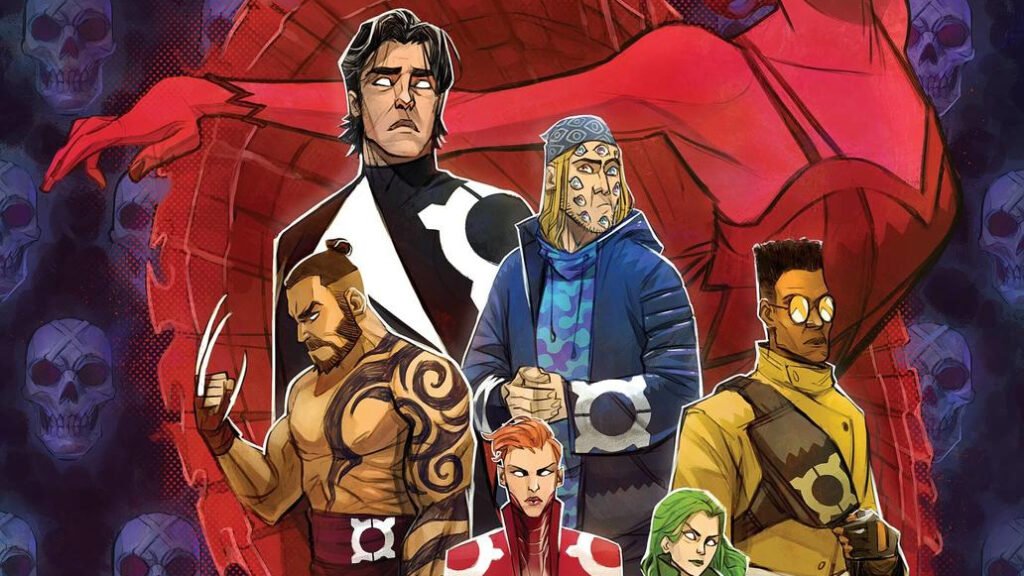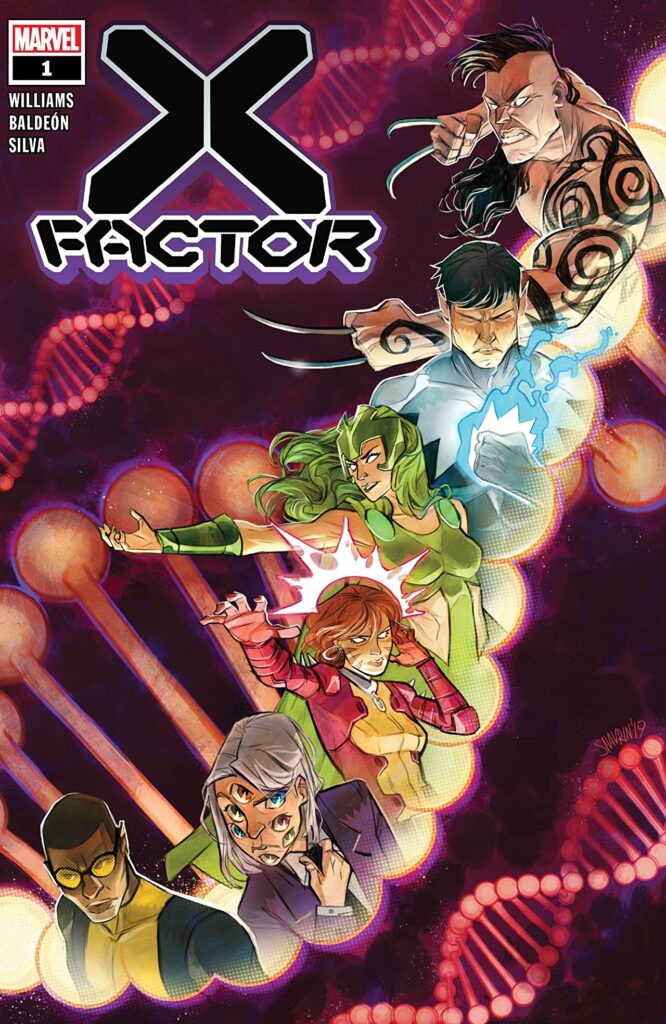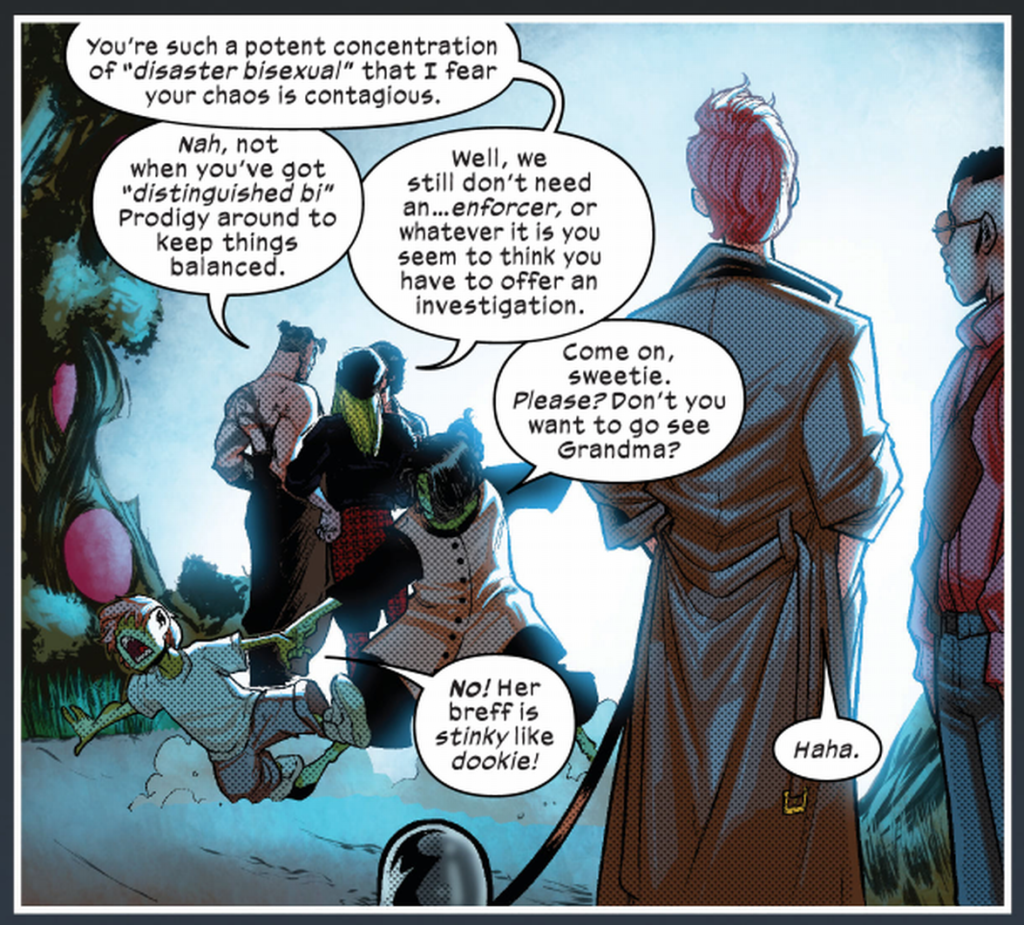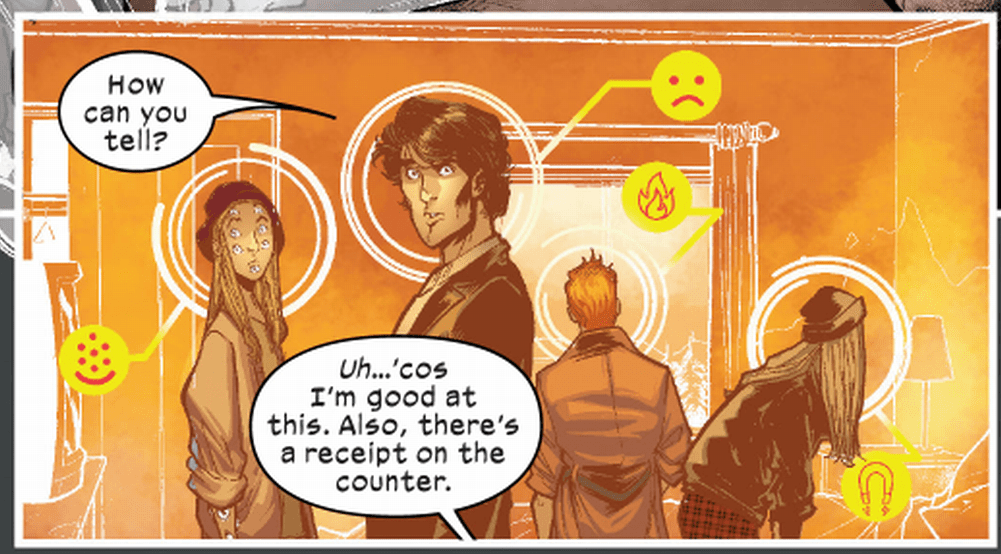
Comics Corner – New X-Men spinoff X-Factor immediately has some of Marvel’s best LGBTQ+ representation
This week saw the debut of X-Factor #1, the latest volume of the classic X-Men spin-off title. With a roster consisting of Northstar, Polaris, Prestige, Daken, Prodigy, and Eye-Boy, it’s an unlikely line-up – but by halfway through its first issue, it had already established itself as one of Marvel’s most LGBTQ+ inclusive titles ever.
The X-Men line of comics has been undergoing a revamp over the last year, with the Dawn of X age – spearheaded by writer and line-wide architect Jonathan Hickman – revitalising the mutant corner of the Marvel Universe. Following years of extinction-level events, the X-Men are now the speartip of a rebirth of mutants, all now living on the island nation of Krakoa.
The in-universe rebirth is being matched by a similar one of the comics themselves, with the total relaunch of the entire X-Men line of books. Hickman’s House of X/Powers of X diptych kicked off the new era in July 2019, and the new X-Factor launches as part of the second wave of comics – albeit slightly later than planned, due to COVID-19 delaying production.

Written by Leah Williams with art by David Baldeon and colourist Israel Silva, the purpose of the team is an interesting one – an investigations agency for the nation of Krakoa. This echoes an earlier iteration of the team, which operated as a private detective agency, but here their remit is exclusively missing persons – specifically, missing mutants.
As part of the Dawn of X paradigm shift, mutants are effectively immortal – they can die, but a team of five mutants with complementary powers – Hope, Egg, Tempus, Elixir, and Proteus – can bring them back from the dead. There are few limits to this, other than The Five struggling to balance resurrecting their entire species following those aforementioned near-extinctions with more urgent cases that require immediate revival – active members of the X-Men or the leaders of Krakoa who may be killed in action, for instance. This is where the new X-Factor comes in – the team will determine who is missing, and who has actually died and require resurrection.
The issue kicks off on a personal note, with Northstar sensing the death of his twin sister, Aurora. With The Five unable to bring her back without proof of death – for good reason, as that could create copies of the same people – the haughty mutant speedster seeks evidence, almost accidentally building a team around him as he goes. First up is Polaris, daughter of Magneto and a veteran member of previous X-Factor teams. They then recruit genius Prodigy and psychic Prestige – formerly known as Phoenix, the daughter of Cyclops and Jean Grey from an alternate future – and reluctantly end up with tag-alongs Daken, Wolverine’s dirtbag son, and Eye-Boy, whose body is covered with dozens of eyeballs that can each see different spectra.
There are no real breakout, mainstream characters on the team, even if they are all niche but fan-favourite figures (yes, even Eye-Boy) but what really stands out is that at least half the team is LGBTQ+. Northstar, as we’ve previously examined, is Marvel’s first openly gay character, and here is shown to still be with his husband Kyle. Perhaps less well-known though is that both Daken and Prodigy are bisexual. This alone makes the new X-Factor a milestone for superhero comics – the first with two openly bisexual men on the team.
Less prominently, Prestige – real name Rachel Summers – has also long been coded as queer. Her earliest appearances had her in a spiked leather-like costume that was closer to a BDSM outfit, and she’s had several extremely close female friendships, alongside romantic relationships with male characters including Nightcrawler. Marvel has never canonically stated Rachel is bi, but it wouldn’t be out of place, and X-Factor could be shaping up to be the book to make that reveal.

What really stands out here though is Williams’ deftly handling a diversity of personalities and representations amongst the book’s queer cast. All too often, having more than one LGBTQ+ character in a piece of media sees them reduced to a singular, often stereotypical, archetype. Here, Northstar remains his arrogant, impatient self. Daken is a drunken, horny mess, referred to as a “disaster bisexual”, and happy to use his pheromone powers to manipulate a male character for information. Prodigy is the opposite – a “distinguished bi”, an over-achiever for whom everything typically needs to be perfect.
This is something new and almost luxurious when it comes to queer narratives. Outside of indie comics, superhero books rarely have enough LGBTQ+ characters on the same page at once to delve into their differences in the first place. In X-Factor, there are enough to have a disaster bisexual, and that not be a negative portrayal.
Williams has a clear vision for all her characters though. Polaris, who’s had more personality overhauls over the decades than most characters, displays a sense of awareness over that here, using the formation of the team as a chance to start afresh and define who she is, finally. Prestige stands out as having no patience – and even a cursory understanding of the traumas the character has overcome will understand why that fits perfectly. Sweet, innocent Eye-Boy is just eager to please and wants to help, maintaining a character trajectory from his earliest appearances in the Wolverine and the X-Men title. Even The Five regain their pre-Dawn of X personalities under Williams’ writing, with X-Factor being the first book since the line-wide reboot to give them enough space to really stand out. Hopefully they’ll continue being significant supporting characters in the comic going forward.

What really shines though is the humour of the book. Although the X-Factor team is dealing with some grim and weighty duties, there’s still space for levity between them as individuals. Little barbs thrown between Northstar and Daken in particular delight (“do you do anything other than slice and flirt?”), while a running joke of Prestige trying to train an alien puppy raises regular smiles. Williams’ smart, funny script is matched by clever visual humour from Caldeon, who packs the pages with hidden details. Prodigy’s goggles identifying the rest of the team with emoticons representing their powers, but highlighting Northstar as a sad boy is easily the best visual joke of the issue. Eye-Boy sticking googly-eyes on his shoes is a very close second.
There are some quirks for the series to work out – for one, sister title X-Force is positioned as the “mutant CIA”, which potentially creates an overlap of purpose for X-Factor’s investigations. The links to the previous detective agency version of the team are flimsy too, with only Polaris having any links to that group, and even then late in its run. These are minor issues though – in every other sense, the book is off to a great start, and it’s blazing a fierce new trail for LGBTQ+ representation already.
X-Factor is published by Marvel Comics. Issues are available in print from your local comic shop, or digitally via ComiXology.






